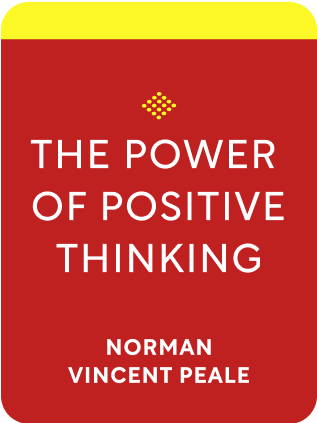

This article is an excerpt from the Shortform book guide to "The Power of Positive Thinking" by Norman Vincent Peale. Shortform has the world's best summaries and analyses of books you should be reading.
Like this article? Sign up for a free trial here .
Do you suffer from excessive stress and frequent anxiety? Is your mind constantly overwhelmed by worrisome and racing thoughts?
Living with strain and anxiety is difficult, but living in a state of harmony, with inner peace, makes for an easy, calm existence. A mind full of anxiety leads to turmoil and unhappiness, but a mind full of peace promotes health and well-being.
Try these strategies to cultivate a peaceful state of mind and inner calm.
How to Create a Peaceful Mind
There are several methods by which you can attain a peaceful state of mind and a calm attitude:
- Empty the mind. The author recommends emptying the mind at least twice a day. When you consciously empty your mind of fear, insecurities, regrets, and other negative emotions, you’ll experience relief and release.
The author once shared this idea while conducting a service on a ship headed to Honolulu. He suggested his audience take their worries, fears, and other anxious thoughts and imagine dropping them all overboard. One man who practiced this expressed how relieved the exercise made him feel.
- Refill the mind. After you empty the mind, you have to refill it with positive, healthy thoughts and peaceful images, or the old miserable thoughts will just come sneaking back in again. Practice thinking peaceful thoughts. Visualize a peaceful scene you once encountered, such as a lovely beach. These peaceful images are healing.
- Say peaceful words. The author calls this “suggestive articulation.” Words have power; repeating anxious, panicky words helps produce a state of anxiety and panic. But speaking peaceful words helps keep your mind calm. The author suggests words like “tranquility,” and “serenity.” You can find peaceful words that appeal to you from a soothing poem or Bible passages.
A group of businessmen were attending a conference. One man in particular was nervous and on edge. He expressed that the pressure he was under felt like it could break him. He had been prescribed medicine for his nerves. Another man suggested a different kind of medicine—reading from the Bible. In particular, he found the 23rd Psalm healing: “He leadeth me beside the still waters; he restoreth my soul.” The nervous man tried this method with great success, finding himself calmer, more emotionally in control, and no longer in need of his calming medicine.
- Engage in peaceful conversations. The conversations you find yourself in can affect your attitude. Negative conversations—petty arguments, gossip—create tension, so don’t contribute to this. Instead, offer positive, optimistic expressions during your conversations with others. Remember, peaceful ideas create a peaceful mind.
- Use silence. The modern world is noisy; even familiar sounds take away from our rest and peace. Quiet, on the other hand, is calming and healing. The author recommends at least 15 minutes of pure silence every day. While this won’t be easy at first, it will get easier with practice. Try these techniques:
- Visualize your mind as the surface of water; you’re trying to keep it still, without even a ripple.
- Think of a serene place you once experienced—a walk in the woods, or sitting at the beach perhaps. Peale calls this a “memory visit”—using an imprint of a peaceful experience to call up any time you need to put yourself in a calming place. You can fill your mind with peaceful experiences and then take little trips there with your memory when you need to find peace. Peale’s favorite memory visit is to the balcony of his favorite hotel in Hawaii. He calls it up in great detail and uses its healing properties whenever he needs it.
Self-Punishment
Sometimes we lack inner peace because we’re punishing ourselves for some real or imagined sin. When you’re unable to forgive yourself for something, you live in a state of constant anxiety that punishment is coming. In these situations, people often work constantly to try to ease whatever guilt they’re feeling. You can find peace of mind in this predicament by releasing your guilt and putting it in God’s hands.
> Peale worked with a hard-driving, nervous, highly pressured man. This man lived with the worry that something sinister was always around the corner. He carried childhood insecurities and guilt from past actions and was constantly in a state of self-punishment. The author prayed with him and asked God to forgive him and set him free. Later the man expressed a sense of healing from this experience. He went on to read the Bible daily and live in health and happiness, finally finding peace in his heart.
Exercise: Cultivate a Peaceful Mind
Living without strain creates a peaceful existence.
Peale says it’s important to fill your mind with positive thoughts and peaceful images. What is your “memory visit” that you can call up when you need to find peace? Describe it in detail and explain how it makes you feel.
Meditating on peaceful words is another method for restoring peace. The author likes the words “tranquility” and “serenity.” What words, or lines from a poem, or Bible passage, resonate for you? Write them here.
Sometimes a sense of guilt can diminish our inner peace. Peale says the answer is to put the situation in God’s hands. Is there something you feel guilty about that’s eating away at your inner peace? Try putting the situation in God’s hands and releasing it. How does this make you feel?

———End of Preview———
Like what you just read? Read the rest of the world's best book summary and analysis of Norman Vincent Peale's "The Power of Positive Thinking" at Shortform .
Here's what you'll find in our full The Power of Positive Thinking summary :
- That there is no problem or obstacle you can’t overcome with faith, positive thinking, and prayer
- The practical techniques of applied Christianity
- How to take control of the events in your life rather than be directed by them






